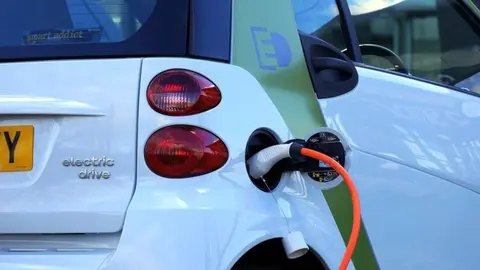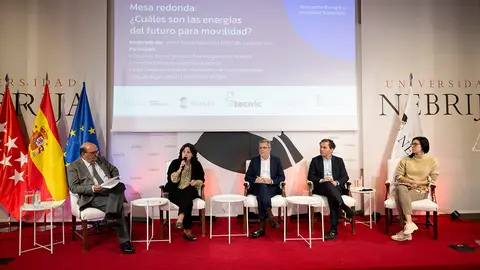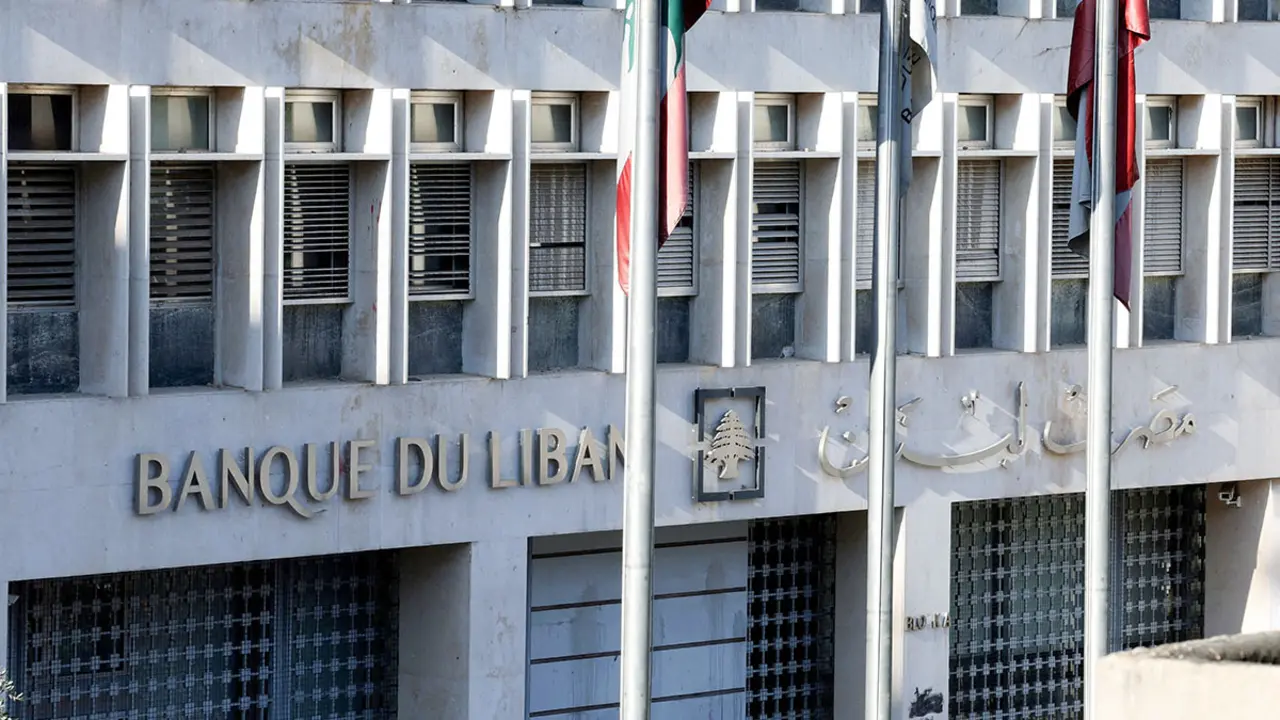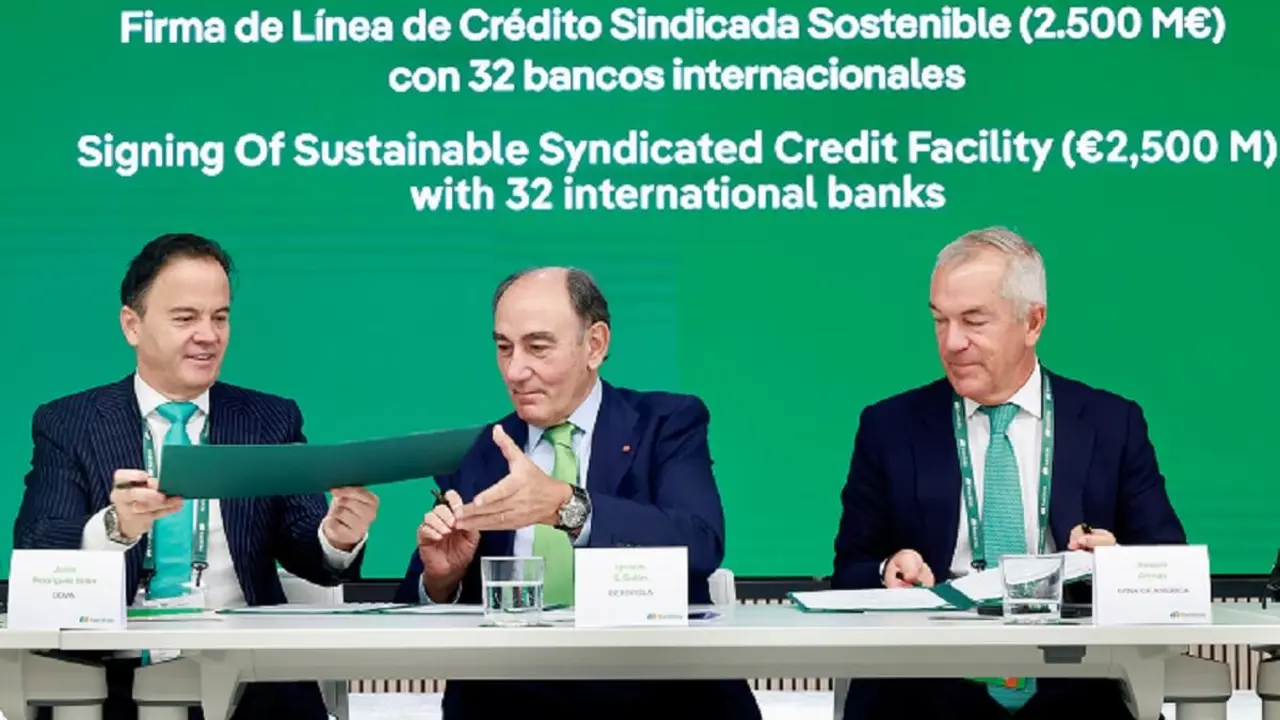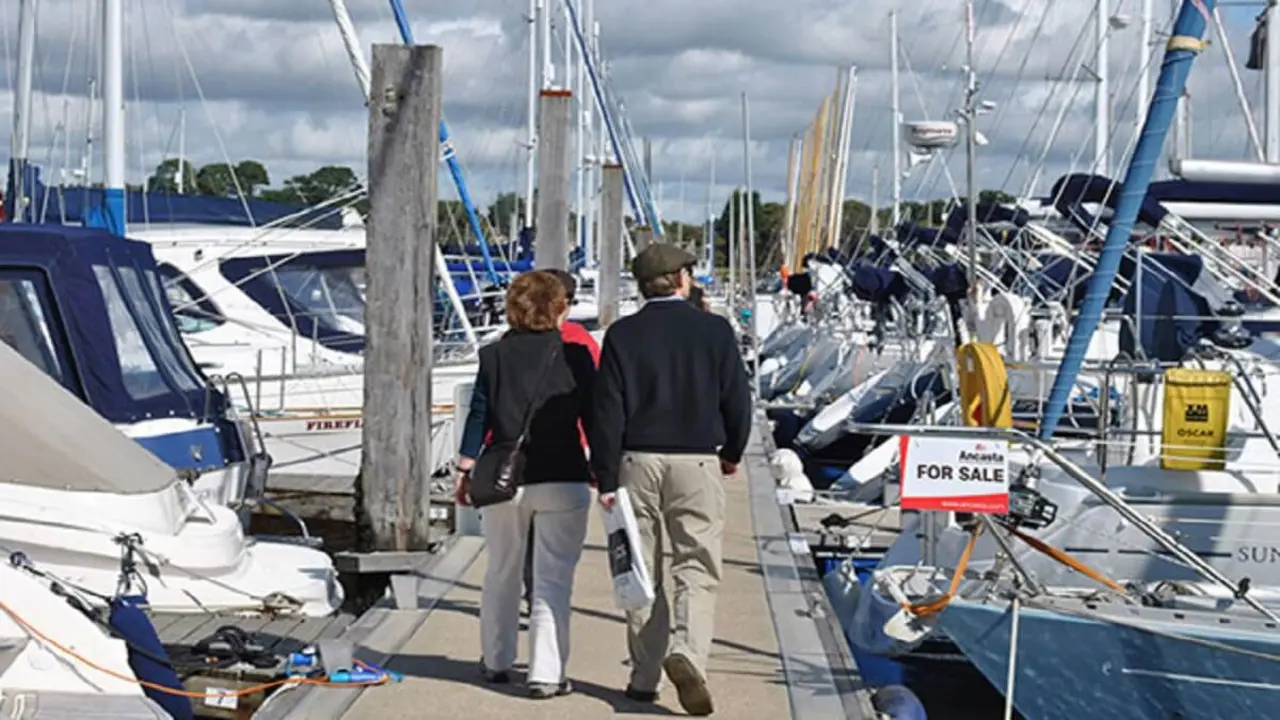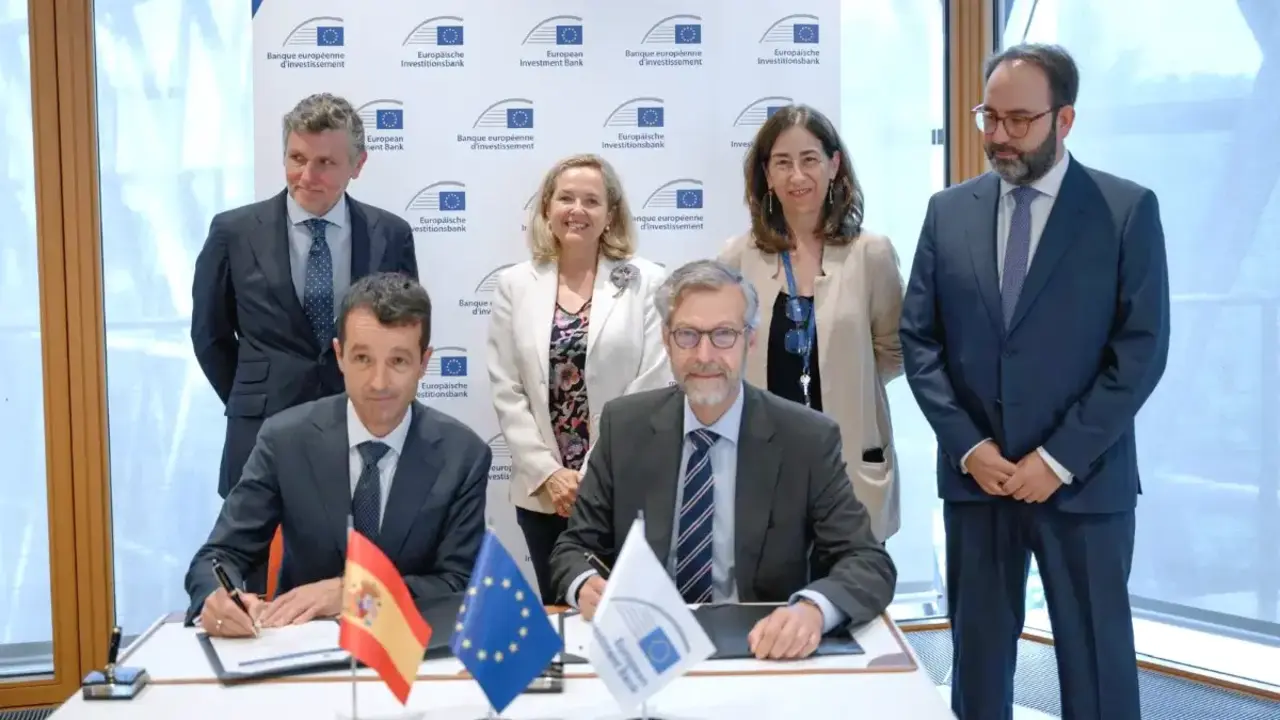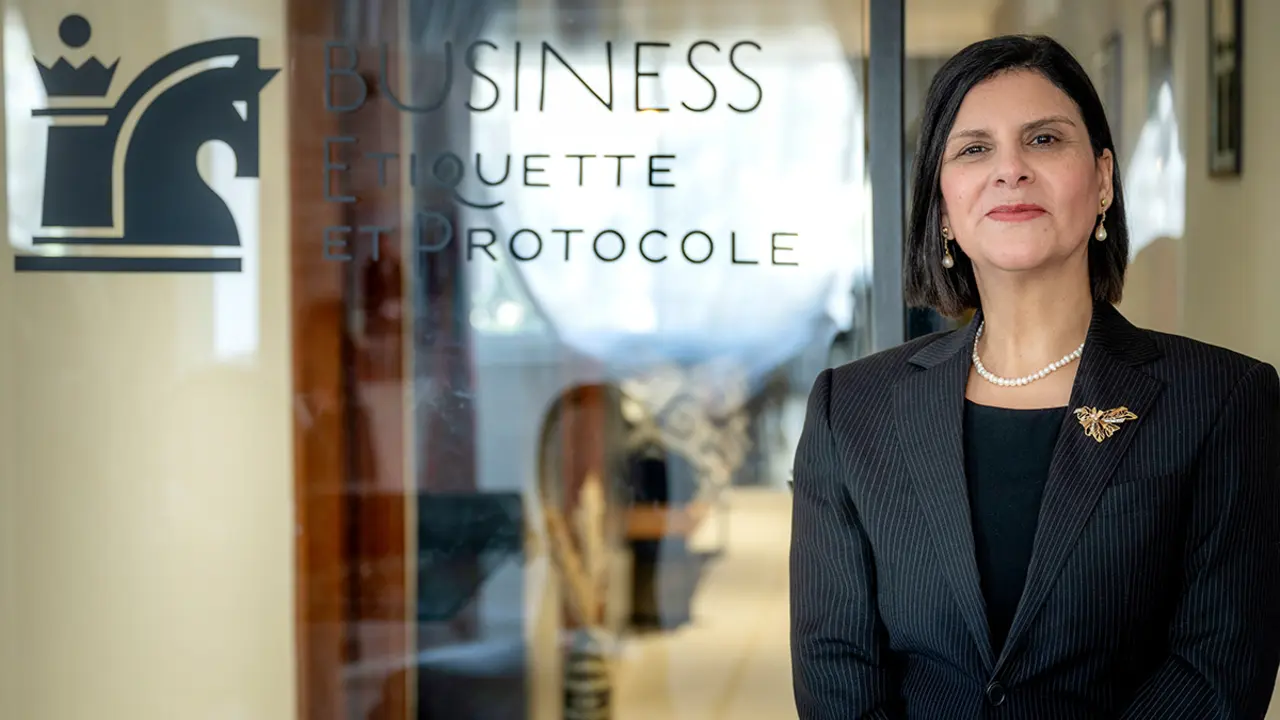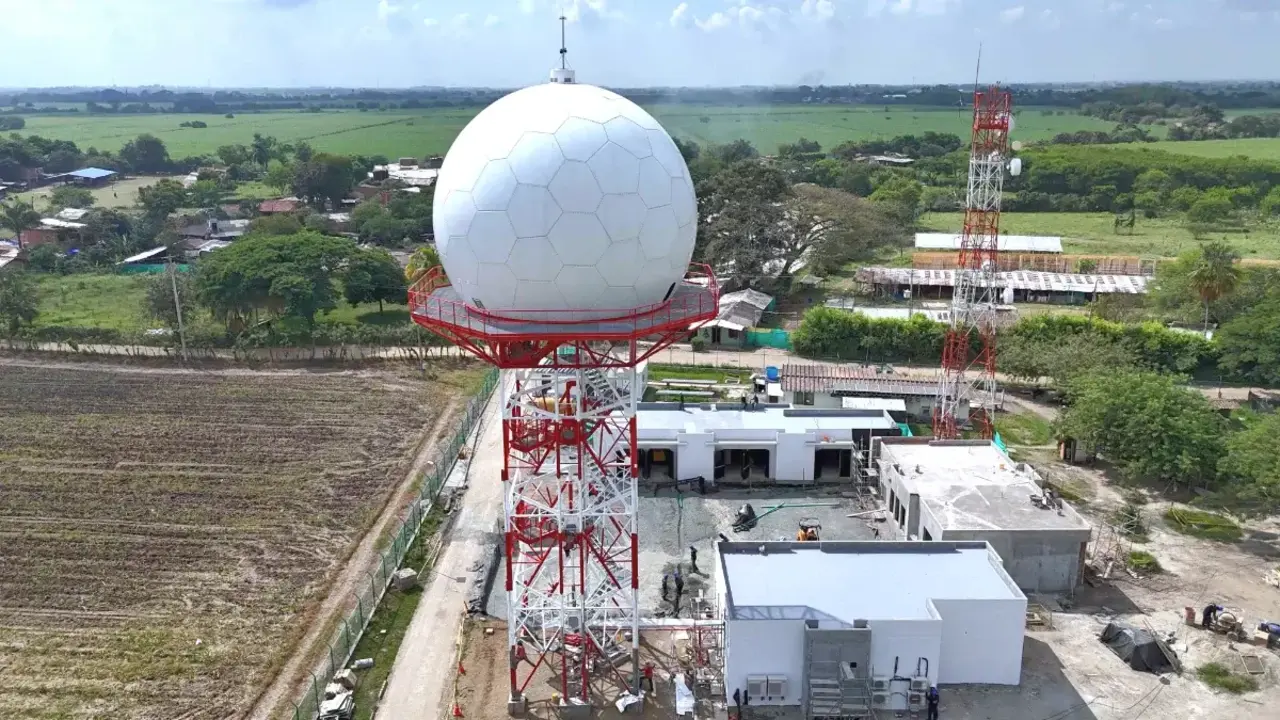Coexistence between electric vehicles and renewable fuels, key to the future of sustainable mobility
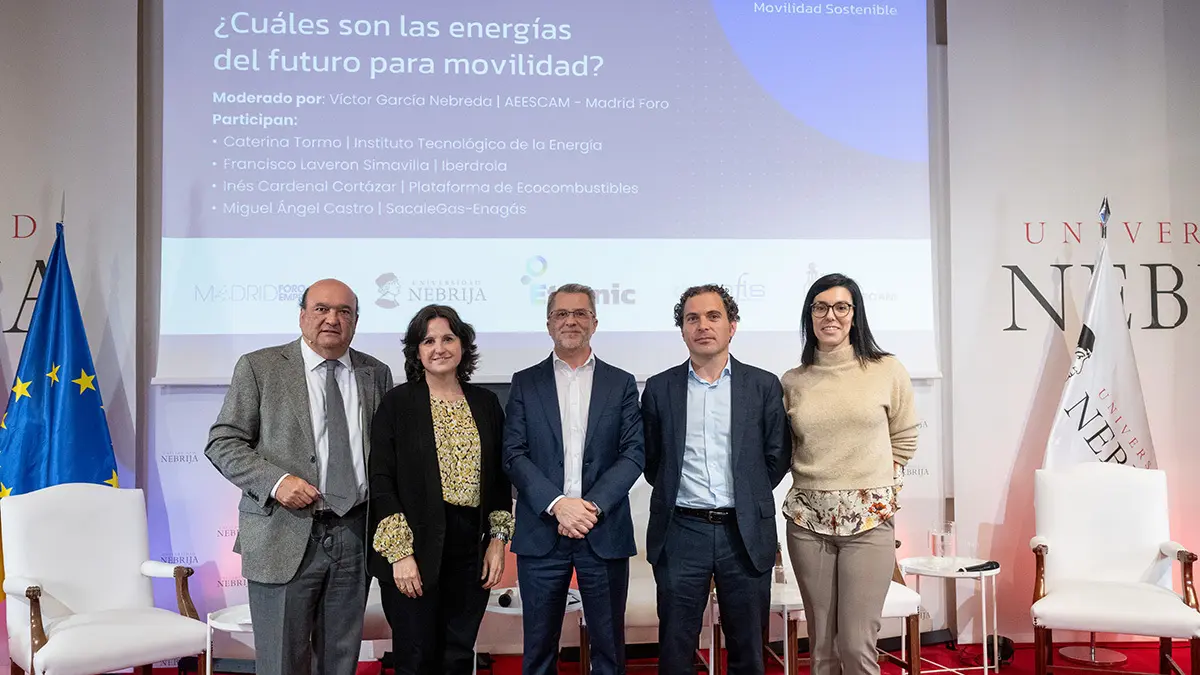
The conference was opened by Hilario Alfaro, president of Madrid Foro Empresarial, and presented by Luis Díaz, vice-rector of Academic Organisation and Teaching Staff at Nebrija University. Díaz pointed out that "transport is an essential sector for economic and social development, and the one most affected by the commitment to sustainability".
- The future of mobility
- Iberdrola
- Enagás
- Energy Technology Institute
- Implementation of electric vehicles
- Presentations
For the Nebrija vice-rector, "we are at a critical moment, in which it is necessary to adopt measures to reduce the environmental footprint. The contribution of transport to the greenhouse effect makes it necessary to come together to assess the ways in which this can be addressed. Commitment to sustainability is also a matter of values, and as leaders in our respective fields, we have an obligation to leave a better world for generations to come".
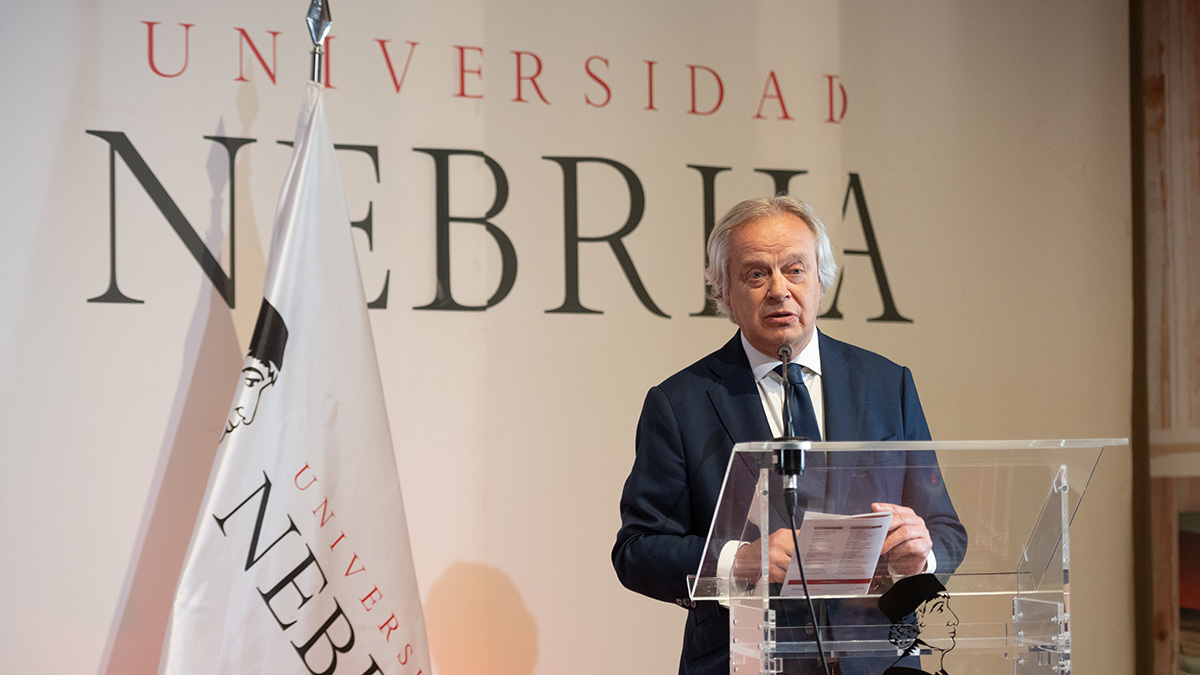
The future of mobility
The first round table of this forum was moderated by Víctor García Nebreda, General Secretary of AEESCAM, and was devoted to analysing the different energy options for the future of sustainable mobility.
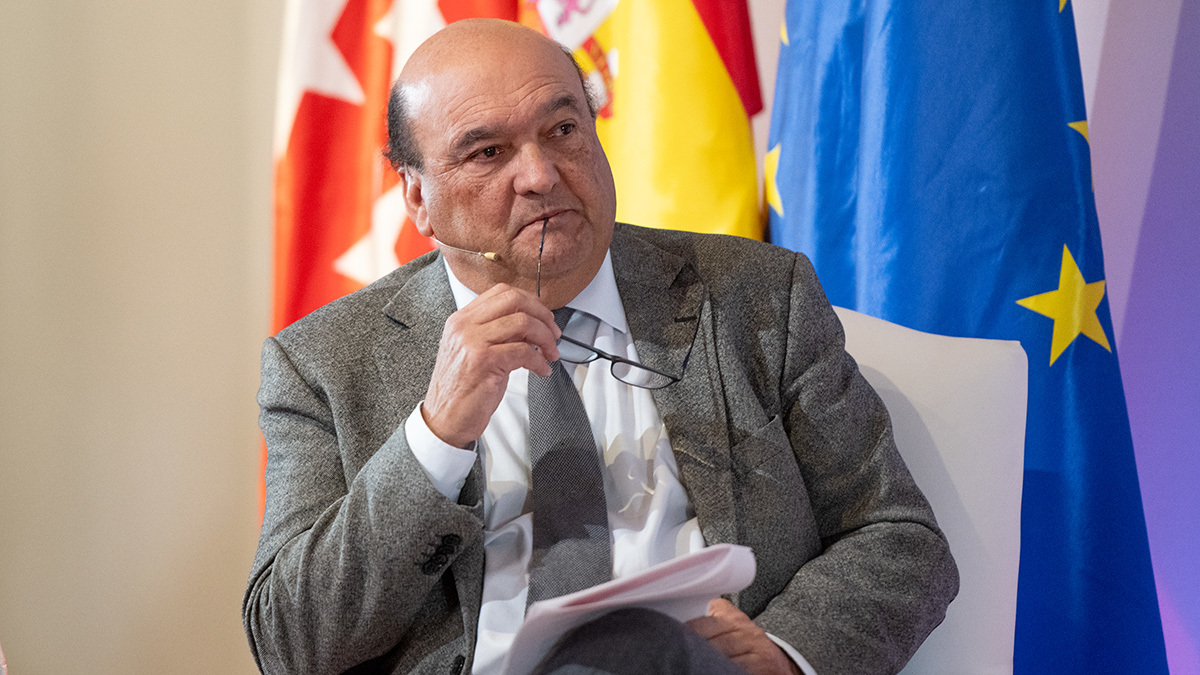
Inés Cardenal, from the Renewable Fuels Platform, representing 348,000 companies and more than 5.7 million transport-related workers, warned that "Spanish and European regulations have confused the objective, which is emissions neutrality, not electrification. We believe that, taking into account all alternatives, there can be better results and a fairer transition.
Renewable fuels can start working right now and offer an alternative to sectors that cannot or do not want to electrify. We must adapt to the needs of customers and not ban technologies or go to war between them: I believe in technological neutrality to meet the common goal.
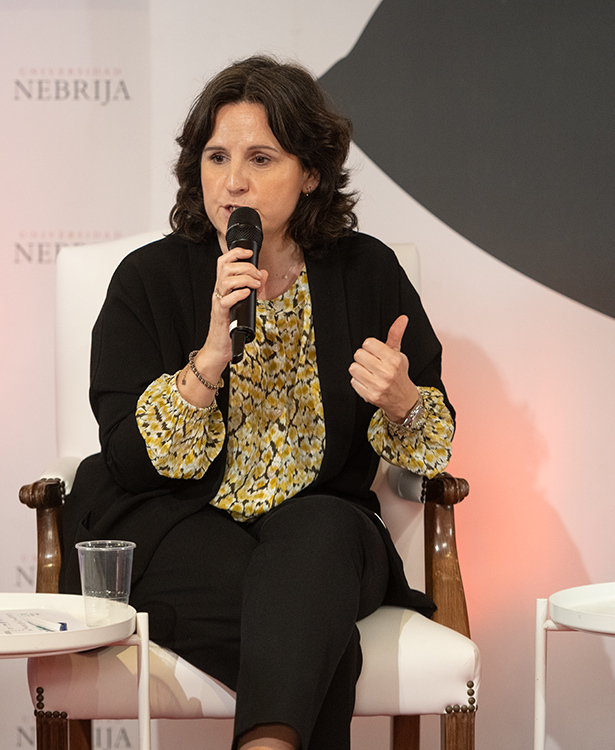
Iberdrola
Francisco Laveron, from Iberdrola, said that "we defend electric mobility because we are an electric company and because of several objectives of social interest. The only way to reduce quickly and directly in vehicles is renewable energies. Anything that burns anything emits particles and harmful substances".
Laveron also talked about energy efficiency: "An internal combustion engine is inefficient and loses energy. And it also means a higher cost; although today an electric vehicle costs more than a thermal one, this will evolve due to the progressive fall in the price of batteries".
The Iberdrola representative also pointed out that Spain is the second largest car manufacturer in Europe "and as a power, it cannot ignore the fact that in 15 or 20 years' time, only electric cars will be manufactured. If we want to continue to be a power, we have to promote it or other countries will eat us up".
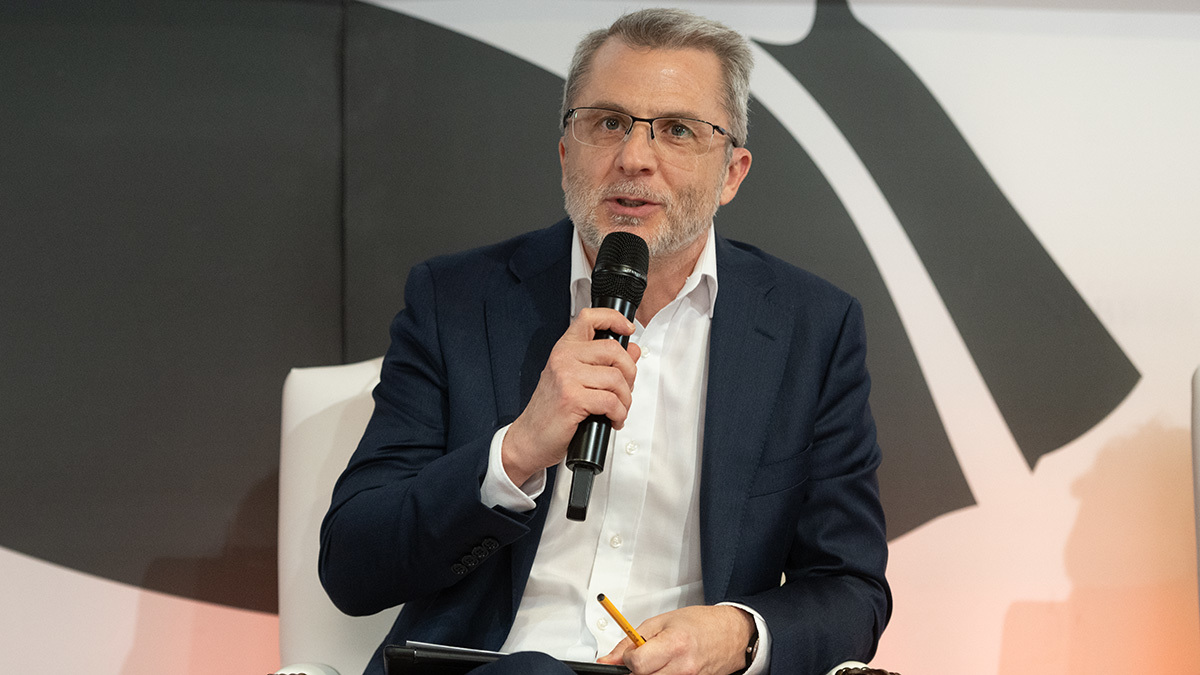
Enagás
Miguel Ángel Castro, speaking on behalf of Enagás, stressed that "electricity will not be able to monopolise all mobility and normal fuels will continue to have a place. There are liquid and gaseous fuels such as hydrogen that will continue to have a place, especially in intensive use sectors such as passenger and freight transport.
Castro also warned that, in 2027, transport will enter the emission rights sector, which will mean an extra cost of up to 45 euros per tonne, which will affect the profit and loss accounts of many companies.
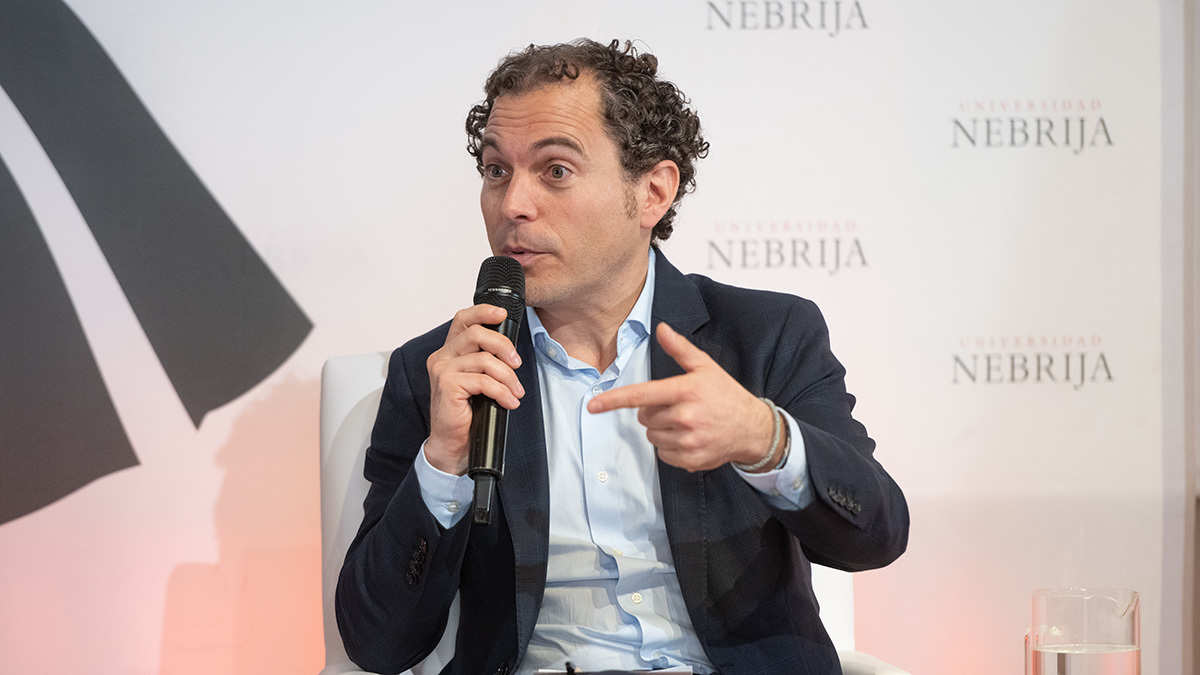
Energy Technology Institute Instituto
Caterina Tormo, from the Instituto Tecnológico de la Energía, said interoperability and standardisation are key. "If tomorrow there is a massive deployment of charging stations, the network will have a problem. We need to standardise the protocol and outline vehicle charging so that it is optimal".
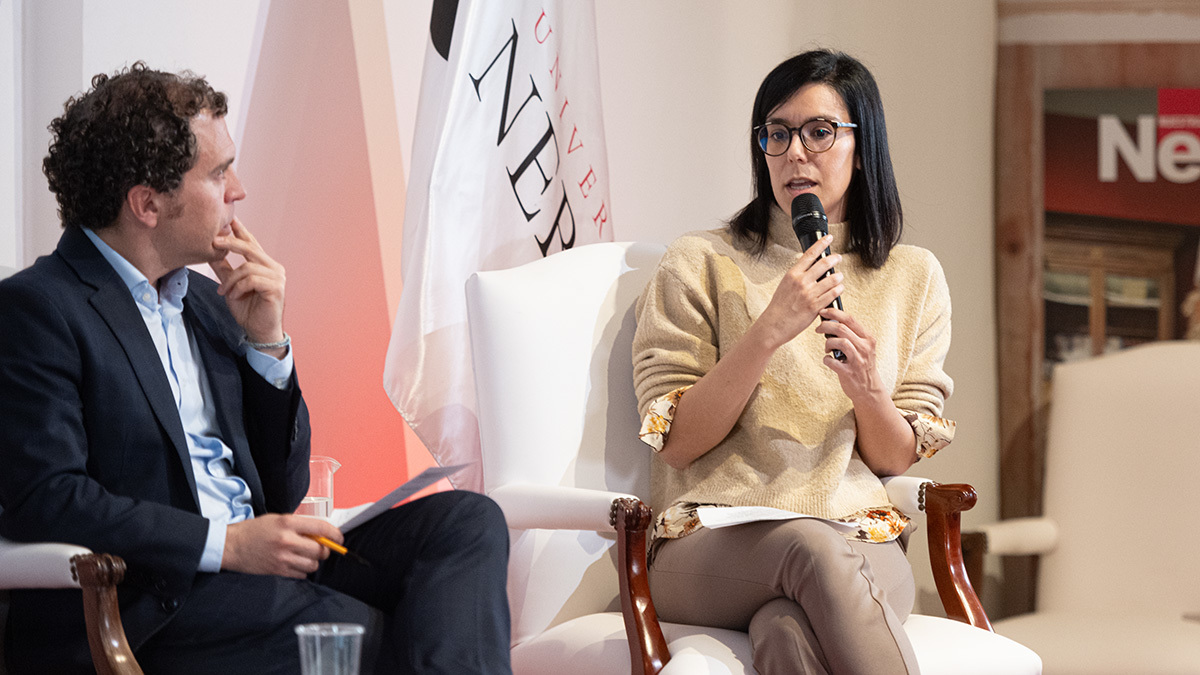
Implementation of electric vehicles
Víctor García Nebreda, General Secretary of AEESCAM and moderator, posed a key question to the speakers on the speed of implementation of electric vehicles. For Inés Cardenal, "focusing solely on electrification is delaying the renewal of the transport sector. The reality is that it is very worrying that the best-selling car is more than 15 years old. And it is a great incongruity that 100% renewable fuels are marketed and pay the same excise tax as if they were fossil fuels; there are no incentives for consumers".
Caterina Tormo pointed out that "a technology is being promoted that does not solve everyone's problems. Europe is a leader in the internal combustion engine, which has a long way to go; perhaps we should promote the use of renewable fuels and complement this with a part of electric production".
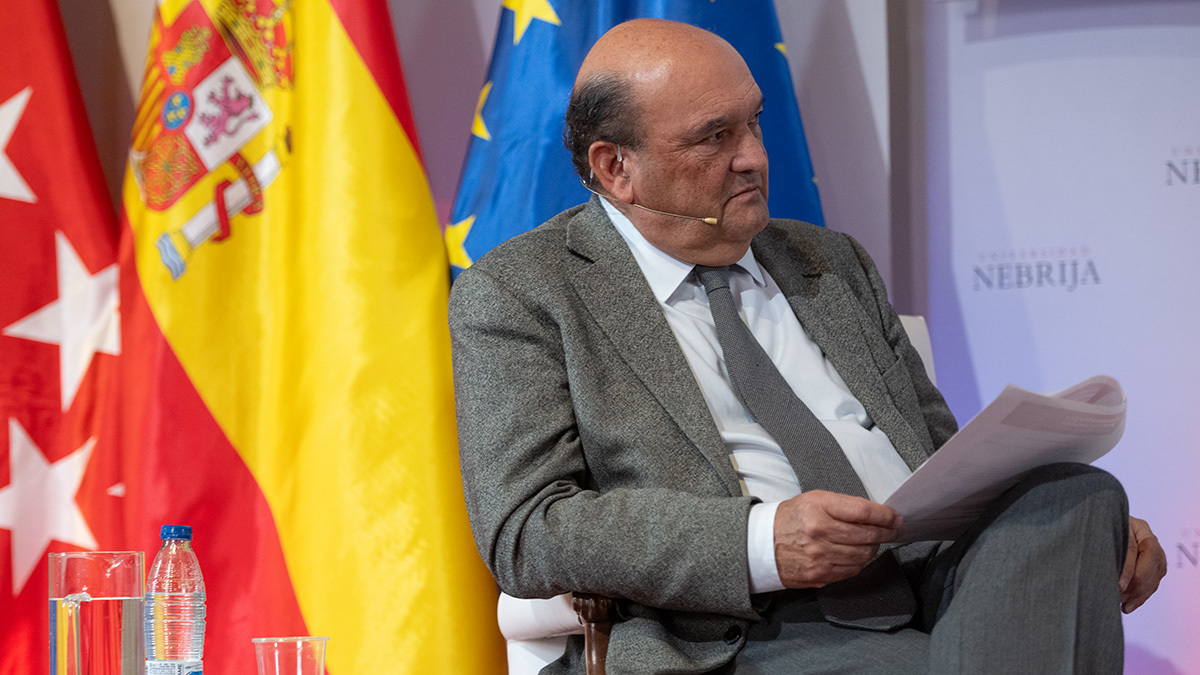
Presentations
In addition to the round table on energy and mobility, which was the highlight of the day, the morning session was complemented by various presentations on specific aspects.
Professors Carlos Gumiel and Rafael Barea del Cerro gave the talk "CO2 reduction targets in Europe. Their direct consequences on our lives", with the aim of establishing the framework that explains the roots of the current panorama in which energy and sustainability are key factors.
In the first part, Professor Gumiel explained why the new sustainability policies are at the forefront. As he pointed out, behind this type of policies is climate change. The current scenario is unknown and can only be understood through hypotheses. He insisted that there are changes in the climate caused by the very nature of the planet (the so-called Milankovitch Cycles), which provoke glaciations approximately every 100,000 years. Given that the last one was 20,000 years ago, there should be no climate change now. However, this is an issue of concern to society because anthropogenic climate change, in other words, one caused by humans through the emission of greenhouse gases, is taking place.
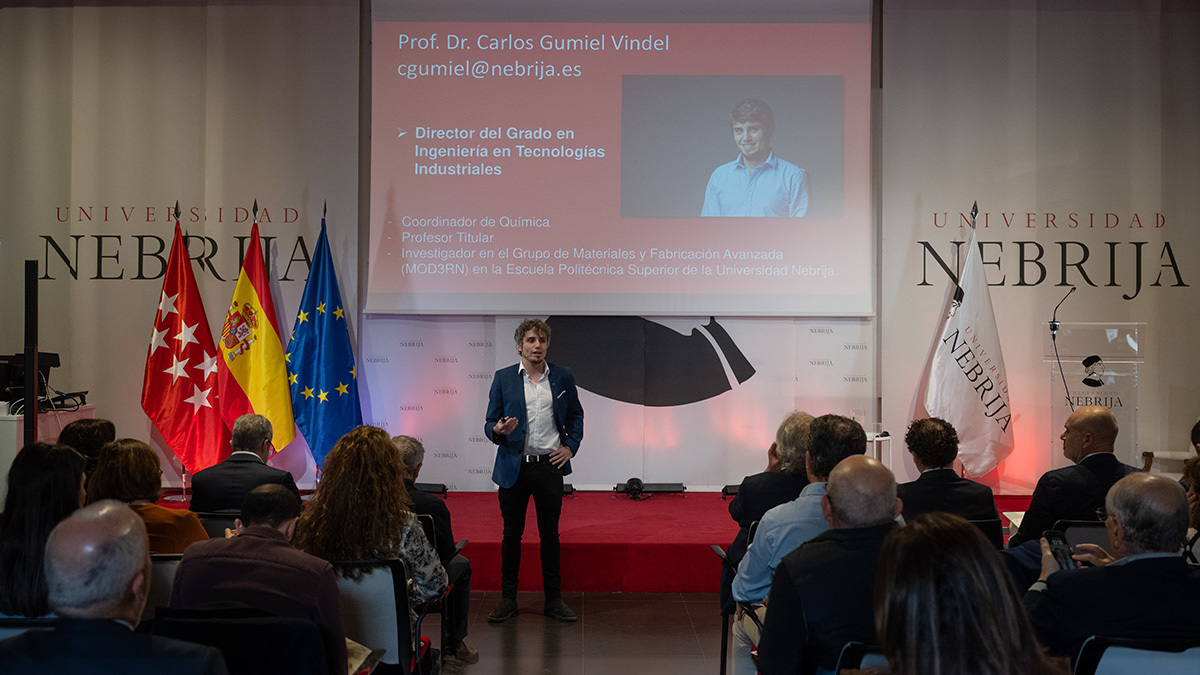
Business policies and initiatives today are focused on curbing the emission of these gases. Professor Barea began his speech on this premise. He traced the beginnings of gas reduction to the creation of a market of rights by the European Union. In this market, the prices of allowances have changed over time, and so have the reduction targets. 2020 was a pivotal year, as the pandemic slowed down industry and CO2 emissions fell.
It was thought that, by not releasing these gases, their use was not necessary and stocks were limited. "This is where we are now," the professor said. We are at the point of maximum change to date: previously a 2% annual CO2 reduction was being pursued and now it is expected to reach 4.2%. "In this scenario, business is certainly going to be affected in the years to come," he concluded.

